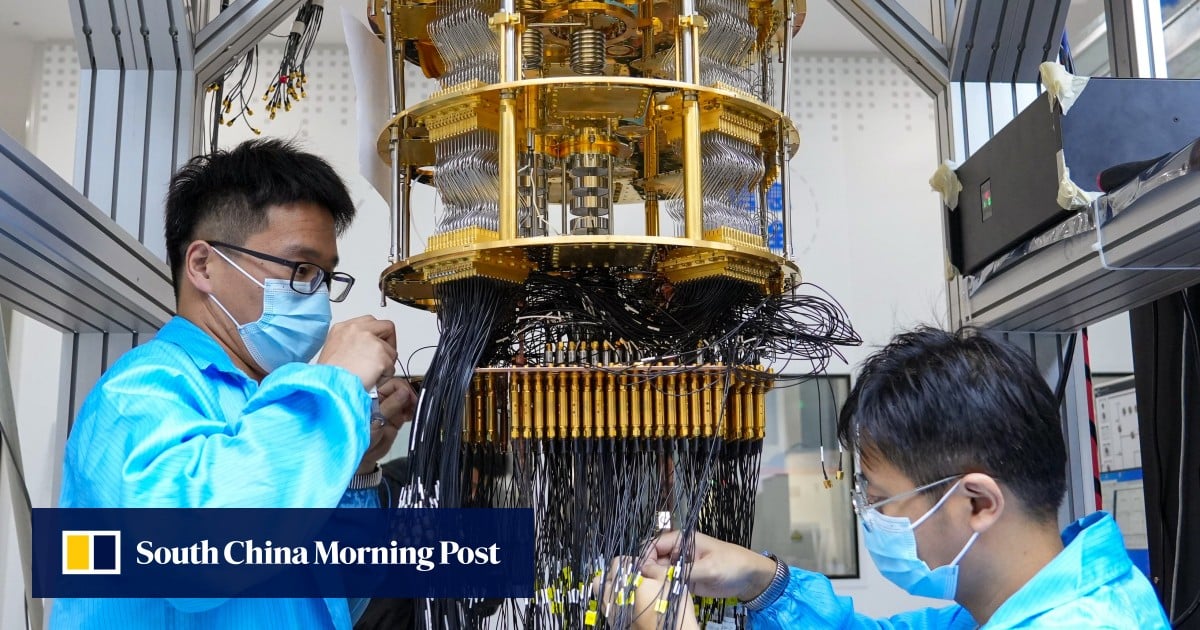Initial Interaction: Chinese AI Harnesses Quantum Power for Enhanced Intelligence and Speed

Advancements in Quantum Computing and AI
Chinese researchers have made a significant breakthrough by using a quantum computer to enhance an artificial intelligence (AI) model with a staggering 1 billion parameters. This development showcases the potential of quantum computing in improving the training processes for large language models.
Achievements with the Origin Wukong
The research team from Hefei utilized the Origin Wukong, China’s third-generation superconducting quantum computer equipped with 72 qubits. They reported an impressive 8.4% boost in training performance while also managing to reduce the number of parameters by 76%. According to Chen Zhaoyun, a researcher at the Institute of Artificial Intelligence under the Hefei Comprehensive National Science Centre, this achievement marks the first practical application of a real quantum computer in fine-tuning a large language model. This groundbreaking work indicates that current quantum hardware is starting to support real-world AI training tasks effectively.
Enhanced Performance Metrics
The improved AI model, as highlighted by the Science and Technology Daily, demonstrated notable performance in specific tasks. When the model was trained on mental health conversation data, it made 15% fewer mistakes compared to its predecessors. In a mathematics problem-solving context, its accuracy dramatically improved from 68% to 82%, showcasing the tangible benefits of incorporating quantum computing into AI training protocols.
Importance of Fine-Tuning in AI
Fine-tuning is a vital step in customizing general AI models like DeepSeek or Qwen for specialized applications, such as analyzing medical data. Traditionally, this fine-tuning process relies heavily on powerful servers, which can introduce various challenges, including limitations in scalability and high energy consumption.
The Role of Quantum Computing
Quantum computing stands apart from classical computing due to its unique properties. By leveraging principles such as superposition—where a single particle can exist in multiple states—and entanglement—where particles remain interconnected and can influence each other instantaneously—quantum computers can explore vast combinations of parameters at the same time. This capability significantly accelerates and enhances the AI training process.
Quantum-Weighted Tensor Hybrid Parameter Fine-Tuning
Researchers from Origin Quantum, the Hefei-based startup that developed the Origin Wukong, collaborated on a novel technique known as quantum-weighted tensor hybrid parameter fine-tuning. This method focuses on optimizing the training of AI models by effectively utilizing quantum principles, providing the ability to process a wider range of variables and improve outcomes in less time.
Implications for Future AI Development
The research team’s advancements open up exciting possibilities for the future of AI development. By using quantum computers to fine-tune AI models, businesses and researchers can expect improvements not just in performance metrics, but also in energy efficiency and scalability. As technology continues to evolve, the integration of quantum computing into AI training could lead to breakthroughs in various fields, including healthcare, finance, and more.
Conclusion
In summary, the pioneering work conducted by Chinese researchers marks a significant step toward harnessing the power of quantum computing for AI applications. With ongoing research and development in this area, it’s expected that future advancements will reshape how AI interacts with large datasets, ultimately enhancing practical applications across numerous industries.






